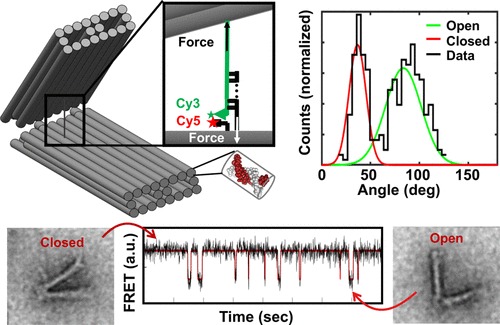In an age where personal information is increasingly vulnerable to breaches, safeguarding privacy has become more crucial than ever. DNA testing, by its very nature, involves handling deeply personal and sensitive data that can profoundly impact lives, relationships, and futures. When individuals decide to undergo DNA testing, they place their trust in the testing provider not only to deliver accurate results but also to protect the confidentiality of their genetic information. We will explore why confidentiality is so crucial in the DNA testing process and how one company demonstrates a steadfast commitment to maintaining the privacy of every client.
The Importance of Privacy in DNA Testing
DNA contains the most intimate details about a person — their biological makeup, heritage, and sometimes even health predispositions. Because this information can reveal a great deal about a person and their family, maintaining confidentiality is crucial to ensure clients feel safe and secure throughout the testing process. In the case of DNAForce Inc. genetic testing, this commitment to privacy becomes a foundational aspect of the service, providing reassurance to individuals during a sensitive experience. The disclosure of genetic information without consent can lead to unintended consequences, including discrimination, stigmatization, or emotional distress. It is not just about data protection, but also about respecting individuals’ rights to control their genetic information.
Maintaining confidentiality is also a legal and ethical responsibility for companies handling DNA data. Many countries have strict regulations governing the handling, storage, and sharing of genetic information to prevent misuse. When a DNA testing service upholds these standards rigorously, it ensures that clients’ data is shielded from unauthorized access and misuse. This responsibility extends beyond the testing phase to include securing data storage and implementing controlled access policies, ensuring that only authorized personnel can access and handle the information.
Moreover, confidentiality fosters trust between the client and the testing provider. Knowing that personal data will not be shared without explicit permission encourages more people to seek out DNA testing services when needed. Whether it is for paternity verification, ancestry exploration, or medical reasons, the assurance of privacy helps clients make informed decisions without fear of exposure. This trust is foundational for the service provider’s reputation and long-term success.
DNA testing often involves scenarios where relationships or personal histories are under scrutiny, which can be emotionally charged. The respect for privacy in these moments can mean the difference between a dignified experience and one fraught with anxiety. When confidentiality is maintained, clients can feel comfortable throughout the process, confident that their sensitive information will not be disclosed in ways that could harm their relationships or social standing.
Another critical aspect of confidentiality in DNA testing is the protection against identity theft or fraud. Genetic data is unique and permanent; if mishandled, it could be used to impersonate someone or manipulate genetic databases. Robust data protection measures, encryption, and secure communication channels are all part of a comprehensive confidentiality framework that minimizes such risks.
How DNAForce Inc. Upholds Privacy and Confidentiality
Committed to client trust and legal compliance, DNAForce Inc. has established clear and stringent protocols to protect the privacy of every individual. From the initial consultation to the final delivery of results, the company integrates privacy protections into every step of the testing process. This dedication reflects a deep understanding of the sensitive nature of genetic data and the potential impact of its disclosure.
DNAForce Inc. ensures that client samples are labeled with unique codes rather than personal identifiers, reducing the risk of accidental exposure. This coding system separates identity from sample data, creating an additional layer of security. Such anonymization practices are critical in maintaining client confidentiality, especially when handling multiple samples simultaneously.
The company also enforces strict access controls, allowing only authorized personnel to view or process client data. These professionals operate under confidentiality agreements, reinforcing the seriousness with which privacy is treated. Any breach of these agreements can result in severe consequences, underscoring the company’s zero-tolerance stance on privacy violations.
Secure data storage is another pillar of DNAForce Inc.’s commitment to confidentiality. All genetic information and test results are stored in encrypted databases that comply with international standards for data security and protection. This approach prevents unauthorized access and safeguards against cyber threats, a growing concern in the digital era.
Communication with clients is handled through confidential and secure channels. Whether delivering test results or responding to inquiries, the company prioritizes encrypted communication to prevent interception or unauthorized disclosure. Clients receive information only after their identity has been verified, ensuring that results do not fall into the wrong hands.
Transparency is also key to DNAForce Inc.’s approach to confidentiality. Clients are fully informed about how their data will be used, stored, and protected before testing begins. Clear privacy policies outline the company’s commitment and procedures, empowering clients with knowledge and control over their genetic information. This openness builds confidence and reassures clients that their privacy will be respected throughout the process.
Furthermore, DNAForce Inc. does not share or sell genetic data to third parties without explicit consent. This strict policy protects clients from unwanted marketing or data exploitation, a concern increasingly voiced by those seeking genetic testing. The company’s ethical stance on data privacy aligns with global expectations and regulatory frameworks designed to protect individuals’ rights.
Confidentiality is far more than a procedural requirement in DNA testing — it is a fundamental right that protects individuals from potential harm and preserves their dignity and privacy. DNAForce Inc.’s thorough commitment to privacy through anonymization, secure storage, restricted access, and transparent communication exemplifies how DNA testing can be conducted responsibly and ethically. For those considering DNA testing, knowing that privacy will be rigorously protected offers peace of mind, allowing the focus to remain on the meaningful outcomes of the process rather than concerns about data misuse. The importance of confidentiality in genetic testing is clear, and companies that uphold this principle make a significant contribution to the trust and well-being of those they serve.


